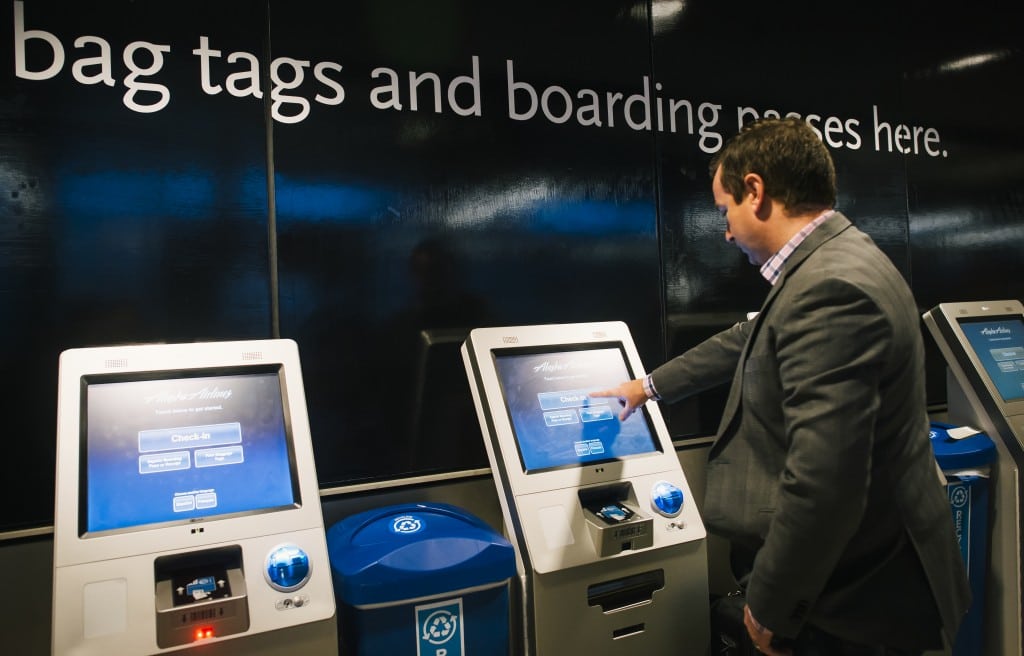6 Highlights From the DOT's New Passenger-Friendly Airline Guidelines

Skift Take
The Obama Administration on Tuesday announced a series of relatively minor rule changes and proposals it says will protect airline passengers and encourage more competition among carriers.
The guidelines proposed by the U.S. Transportation Department will not significantly change the travel experiences for most Americans. But the government is trying to slightly improve customer satisfaction, mainly by forcing carriers to be more transparent about services they provide. If airlines provide more data to customers, regulators say, passengers will be able to make more informed decisions about which carriers they fly.
"The goal is to have a more robust consumer marketplace and to create a more competitive marketplace," Secretary of Transportation Anthony Foxx said in a briefing announcing the new measures.
The proposals come as the U.S. Department of Justice determines whether it should clear Alaska Airlines' proposed acquisition of Virgin America. Consumer advocates generally oppose the deal, believing it will lead to higher fares and less competition. Alaska executives, however, note that their airline overlaps on fewer than 10 routes with Virgin America. They have said they're optimistic the deal will close in the fourth quarter. It is possible, however, that the Justice Department may ask for concessions from the airlines before clearing the acquisition.
Whatever decision the Justice Department makes likely will have far more of an effect on the competitive landscape than what the Transportation Department is proposing. But Foxx said his department nonetheless wanted to step in and provide some protections to "help consumers know how airlines are performing."
Update: On Oct. 23, President Obama tweeted this video about the new proposals
When your bags are delayed, you should be able to get a refund on those fees. @POTUS is taking action: https://t.co/pqdrS2BRAb
— The White House (@WhiteHouse) October 23, 2016
Here is some of what the Obama Administration is proposing:
More airlines will share more complete operational data
Today, the largest U.S. airlines report on-time statistics for all the jets they operate. But major airlines generally do not include flights operated by their feeder airlines — flights branded as American Eagle, United Express, and Delta Connection. Under the new rules, this will change, so passengers will have a more thorough picture of when flights are on-time and when they are late. When it Delta reports results, for example, it will include Delta Connection flights.
In addition, under today's rules, only the 12 largest U.S. airlines must report on-time data. That leaves out Allegiant Air, as well as several regional airlines flying on behalf of larger carriers, including Envoy Air, Republic Airlines, and Mesa Airlines. The government is changing its reporting requirement, and more airlines will have to report on-time numbers, starting in January 2018.
Disclosing Display Bias on Websites
According to the DOT, some online booking websites do not always post the cheapest fares first. Instead, the sites might have a "business relationship" with a particular airline — perhaps it pays the highest commissions — and the site will post that airline's results highest.
The government will not ban that practice. But it wants sites to tell consumers what they are doing.
"The disclosure has to be prominent and in search results," a DOT official said in the briefing.
New reporting guidelines for mishandled bags
Currently, the government publishes a list detailing how often airlines mishandle bags. The data ranks airlines based on how often they mishandle bags per every 1,000 passengers they carry.
But the data is not a great measure of mishandled bags because it does not account for how many bags an airline handles. Virgin America generally has the fewest mishandled bags per 1,000 passengers. But it's possible fewer Virgin America customers check bags than, say, Southwest Airlines customers.
The new guidelines will be simple. Airlines will report the number of bags they mishandle, comparing it to the overall number of checked bags they accept.
New reporting requirements for mishandled wheelchairs
Large airlines will have to report how often they mishandle wheelchairs. The DOT wants consumers to have information so they "can easily compare carriers and make informed travel decisions."
Refunds for mishandled checked baggage
It will not happen immediately, but the DOT wants to develop protocols that would require airlines to refund bag fees if they do not provide the service they promise. "If you are playing for the service of baggage delivery, you should expect to receive that baggage in a timely manner," Foxx said.
A DOT official said the government is trying to figure out how this would work. First, it must determine what it means for a bag to be "substantially delayed."
Airlines generally already must reimburse bag fees if the bags are lost.
More transparent ticket sales
The government wants to decide whether airlines should be required to share fee information with prospective ticket buyers, "so customers can get an all-in-one price when they shop online."
A decision on this matter may take some time, the DOT said, and nothing is imminent. Congress had directed DOT to take this step.




